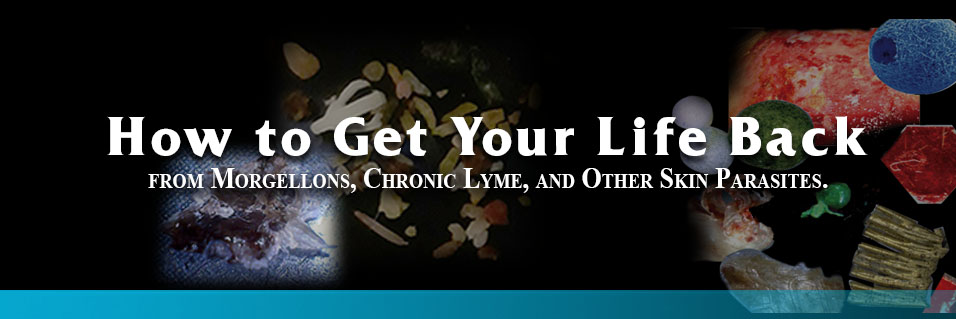This is part of a recent press release written by By Robert Walker | August 26th 2018 05:12 AM
Robert has been an editor with Wikipedia for quite some time. FYI, Wikipedia is an encyclopedia written by those who are acknowledged as experts in their field. What I didn't know is that these experts monitor each other and can black ball any other editor, warranted or not. Robert Walker was an editor on several fronts for which he was criticized. Rather than send you with a link to the entire press release--Indefinitely Blocked From Editing Wikipedia For Covering NASA's Search For Possible Habitats For Life On Mars (A Science Goal), which covers several topics, I copied the section pertinent to Morgellons below. But, what is even more disconcerting is that Robert is not an expert on Morgellons and has no business writing about Morgellons. He simply researched Morgellons and wrote about it to update the existing information in the on-line encyclopaedia. Nevertheless, he was right about his findings.
I would think that to qualify to write about Morgellons in Wikipedia, you'd have to be in clinical practice treating sufferers of the disease, or a researcher, or maybe someone who wrote a book, or has worked with sufferers--not just someone researching the subject as you'd find a college student doing working for his masters degree. He writes,
"I wrote an article for Wikipedia about the hypothesis of a connection between Lyme disease and Morgellons. Mayo Clinic summarizes it like this:
“Morgellons disease is an uncommon, poorly understood condition characterized by small fibers or other particles emerging from skin sores. People with this condition often report feeling as if something were crawling on or stinging their skin.”
“Some doctors recognize the condition as a delusional infestation and treat it with cognitive behavioral therapy, antidepressants, antipsychotic drugs and counseling. Others think the symptoms are related to an infectious process in skin cells. Further study is needed.”
from :Morgellons disease: Managing an unexplained skin condition (the emphasis is mine).
The idea of a delusional infestation is that they believe that they are infected by parasites beneath their skin and the sores are the result of scratching themselves in response to this delusional belief. The final sentence is what my new material was about. The Wikipedia article on the topic leaves it out.
The background here is that the CDC did an expensive study which came to the conclusion that they had found no evidence that it is caused by any disease agent. However other researchers have said that despite the expense, the study was flawed. They say that their tests for disease agents were not sensitive enough. Also, they say that there were flaws in the methods used to select the people to test (they found only 41 patients to test, and didn’t ask them if they self identified as having Morgellons).
Since then a group of researchers lead by Marianne Middelveen- a veterinary microbiologist have been studying the possibility of a connection with a disease of cattle caused by the same microbes, spirochetes, that cause Lyme disease, and with similar symptoms to Morgellons, causing minute fibres to appear in the hooves of cows. Their results so far suggest that it is connected and that Morgellons is caused by the same microbes.
The main Morgellons article in Wikipedia does not mention that there has been any scientific criticism of the CDC study or cite the research. There are pages of archived discussions of people saying the same thing “please mention this research in your article”. They always answer “No, it can’t be, under the strict guidelines of the research that can be used in medical articles, MEDRS”. It is true that it can’t be included under MEDRS, strict guidelines to prevent inaccurate or controversial information from being presented in Wikipedia articles on medical conditions. But what they don't mention in the debates is that it could be included so long as it is labeled as minority or fringe science, as is done for a similarly controversial condition, Chronic Lyme disease which that Wikipedia article introduces as a "generally rejected diagnosis". Bizarrely, they have this line in the main Morgellons article:
“In 2008, The Washington Post reported that Internet discussions about Morgellons include many conspiracy theories about the cause, including biological warfare, nanotechnology, chemtrails and extraterrestrial life”
Those hypotheses can be mentioned apparently, on the basis of a journalist who wrote about what they saw in a google search of internet forums. But research by a veterinary microbiologist published in the science journals can’t be mentioned, even as “Fringe science”. Instead the only mention of this topic is a one sentence link to an article in "The Atlantic". To me it seems like double standards.
When I tried to get the research mentioned on the main page. I was warned by an editor, who I'll call EditorJ, that I risked a topic ban, and I left the discussion. You can read the discussion on my own talk page here. His warning that he would try to get me sanctioned if I persisted is towards the end of the discussion. Just for talk page activity. I've never attempted to edit the article itself. I’ve been told that other people who try to get this research included in the article have ended up being blocked from Wikipedia.
Anyway, before that, on an earlier occasion, one of them said it was okay for me to write such an article on Marianne Middelveen's research, so long as it is labeled clearly as controversial fringe science in the first paragraph, and I link back to the main article. So, I and a wikignome (an editor whose main interest is in improving details of presentation rather than adding content) then started work on it. The wikignome said my first draft had issues of encyclopedic tone, but after working on it for a while, eventually we were both satisfied and he said it looked fine. This is the final version: Morgellons Lyme hypothesis - Wikipedia
At that point two editors from the main article who hadn’t commented before came along and first deleted most of the content of the new article that I’d written until there wasn’t much left. Then they said that what was left was unacceptable and that they did not agree with the original editor who had approved our idea. They changed the page to a redirect back to the main article. I did nothing to try to stop them when they did this. Talk page discussion here Talk:Morgellons Lyme hypothesis - Wikipedia. In the indef block debate, this was given as an example of my bad behaviour, and inability to co-operate. Actually I collaborated well, as you can see. It wasn’t our fault that at the end of all that work they just merged it away due to two other editors disagreeing with the one who originally approved the new article.
I eventually wrote up that rejected Wikipedia article on my Science 2.0 blog here: Mystery Of Morgellons - Disease Or Delusion - Scientific Hypothesis Of Connection With Lyme Disease and got a fair number of comments and emails from Morgellons sufferers saying how good it was to see someone writing about it properly. I have no personal connection with this condition, and never encountered a Morgellons sufferer before writing it. I just got interested when I read a news story about the singer Joni Mitchell who suffers from the condition and ended up on the Wikipedia article and tried to find out more.
Note - no editors in Wikipedia have authority over any others on content. It’s settled by voting, as the last resort. But the newbie editors come to pages like this one, one at a time. Also they don’t understand Wikipedia guidelines and policies, so the established editors run rings around them, and if it comes to it, can also block them easily too in these bizarre ANI sanction debates. The bewildered newbie won't have a clue what to do about it. In this way a handful of two or three editors can guard a page and keep away dozens of newbies, however distinguished and knowledgeable, who try to add content that they don't "approve" of. The Morgellons article is a good example of this phenomenon."
As we reported in our last press release, a researcher at the Mayo Clinic now believes that many of the 27 people out of 100,000 that are diagnosed as delusional do indeed suffer from Morgellons and that it is real. So, what goes on at Wikipedia is judging others without any organized peer review, It's more like a bunch of nosey busy bodies looking for dirty underwear than any kind of valid peer review and they are not even up on the latest findings of the Mayo Clinic.



